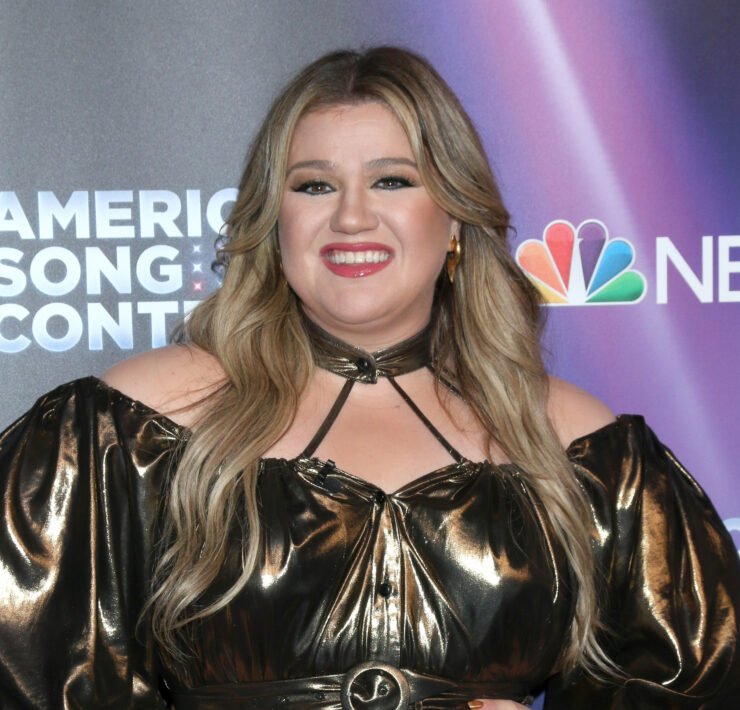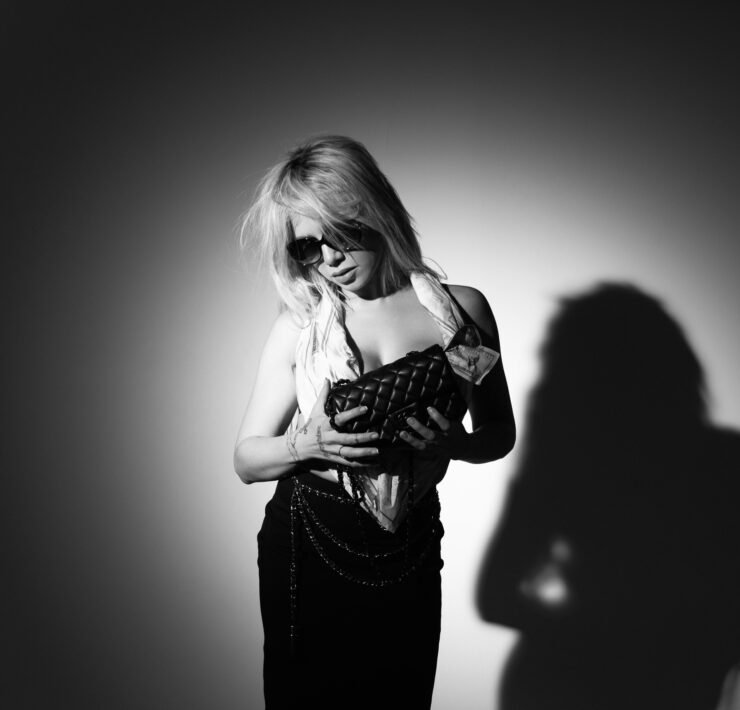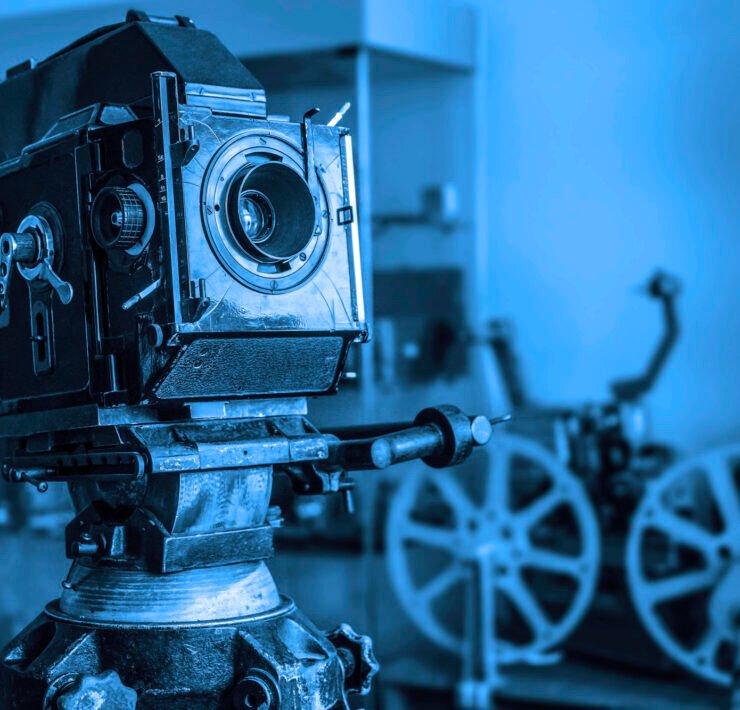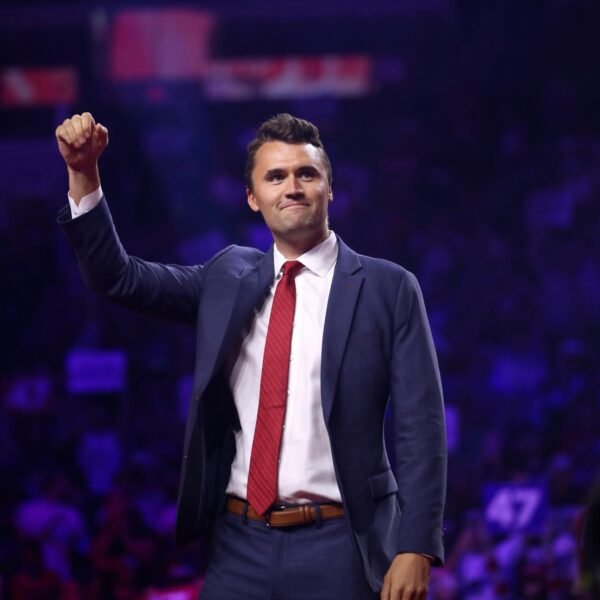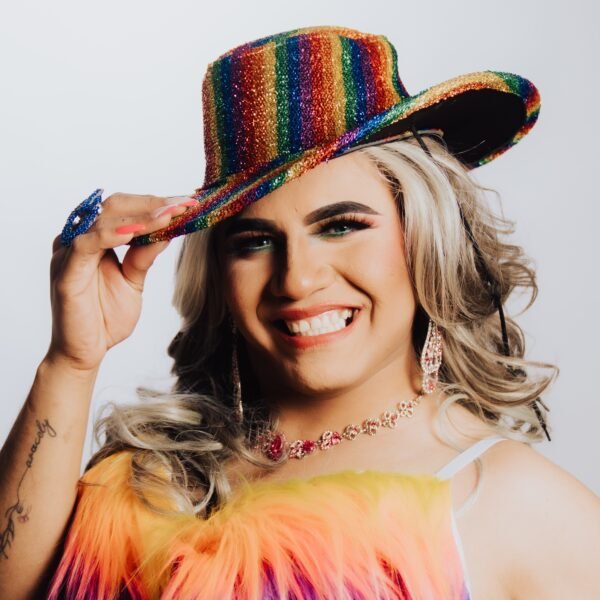‘Lady Liberty’ Embraces Queerness and Creative Voices

Denny Patterson is a St. Louis-based entertainment and lifestyle journalist…
Lady Liberty, the coming out and coming of age queer short film that premiered at the Tribeca Film Festival last year, was recently released on the streaming platform Omeleto.
Starring the film’s creator and writer Julia Lindon, Lady Liberty follows Shea Miller, a 20-something aspiring comedian/current assistant to a way more famous comedian who learns to claim her queerness and redefine herself. Caught between conflicting identities, Lady Liberty is inspired by the real-life events of Lindon. She teamed up with director Taylor Lee Nagel to create a comedic film that explores identity, vulnerability, ambition, passion, fear, shame, community, and belonging with humor, heart, and a healthy dose of humiliation.
Since its premiere, Lady Liberty has won several awards and continues to receive critical acclaim.
OUT FRONT had the opportunity to chat more with Lindon and Nagel about the film and its success. Hello! Thank you both for taking some time to chat with me about Lady Liberty. Without giving too much away, can you tell us more about the film?
Hello! Thank you both for taking some time to chat with me about Lady Liberty. Without giving too much away, can you tell us more about the film?
Julia Lindon: Lady Liberty is a coming-out and coming-of-age comedy that follows Shea Miller who is a young 20-something as she is finding her voice in the New York comedy scene, but also the queer community in New York.
Julia, you are the creator of this film, and it is inspired by your own real-life events. Why did you want to create Lady Liberty?
JL: I thought it was really important, and this is kind of what I wanted to see when I was coming out. Seeing someone who was just at the beginning of that journey. Taylor and I talked a lot about the process of coming out, and that is what we wanted to focus on. It is not just one conversation or just one day. This short film is about one day, but it is about the beginning that really sets off Shea’s journey.
Taylor Nagel: When Julia first shared a draft with me, I think what I was so drawn to was that there is humor and heart in it. There is a mix of all these middle school emotions, Julia would describe it as, and I liked that it had that three-dimensional aspect as opposed to just one version of it.
Have you two worked on projects together before?
JL: This was the first project. We were connected super early in the creative process, which was great, and Taylor’s background was in documentary filmmaking, and mine was more in the sketch comedy world. It was a great pairing because I was taking something that is inspired by my real life, and Taylor was there to help elevate it and find the universal nature of the story.
From a creative standpoint, what do you hope audiences take away from this film?
JL: Lady Liberty Is about identity, so I hope that people will kind of see themselves in the film. If they have ever struggled with figuring out who they are, or they don’t line up exactly with the person they or their community expected them to be, I hope they can see the beauty in that journey. The other thing is, just with the time that we are in right now, we are all realizing how important community and being connected is, and I think that is something Shea is really striving for. Both in the comedy and queer community. Celebrating those places and spaces, however we are doing that these days, I think is an important takeaway.
TN: Julia’s comment about community was really compelling to me in finding spaces and friends. I think this story about Shea and finding Quinn and the story about friendship was one that I do not think we see as often. I really like that and wanted to share that. What have you both personally taken away from this project?
What have you both personally taken away from this project?
JL: So much! I think the people that I have gotten to work with on this is what I am really walking away with. When you take a risk to put a story out there that is personal like this, I am just completely shocked and grateful for all the people who have supported and rallied behind it. I have taken away that I am part of a great community, and I am thankful for that.
TN: Similarly, it is a great honor to be entrusted with helping to tell someone’s own personal story, and there is a lot of history and baggage with that. I felt it was a great collaboration to be able to do that with Julia. I thank her for letting me in.
I heard that Lady Liberty had a very successful run on the festival circuit. Has it been received well by audiences?
TN: Yes! We premiered in 2019 at Tribeca, and after that, we had a handful of great festivals here and internationally. Then recently, we released it on this YouTube channel called Omeleto that has millions of subscribers, which is sort of wild. It was shared, and a lot of people are watching it. The comments are mixed, but people seem to enjoy it for the most part, but it has been great to get it to a wider audience because it is only a small subset of the population who gets to see it at festivals.
JL: In terms of the more personal comments, when I think about it, both on the festival circuit and then through some of the smaller screenings that we have organized, one of them was that we screened at Inside Out which is a LGBTQ festival up in Toronto. We got to share the short with high school students who have come to the festival and spoke about their own coming out stories, and then getting to interact with the piece and talk about how it was inspiring to them or how it evoked different emotions for them, but it was super powerful for me.
We have also had experiences screening in New York where people have come up to either Taylor or myself afterwards and telling us how that’s them. They are a baby gay; their family doesn’t know that they are out. Just seeing people who are in that process and connecting on that level is so cool, and they feel like there was a piece of media made kind of for them in that current time. We are happy that it has an uplifting and happy message of positivity and community at the end.
TN: The fact that people can see themselves in the story is really an exciting win for us.
Related Article: Actor JJ Bozeman is a Proud Snowflake
Julia, since we see Shea learn to claim her queerness and redefine herself, how much of a challenge for you, and what advice can you offer others who are struggling with the same issue?
JL: Great question. I think so much of the process was kind of insular and inner for so long. As much as you think that you can solve your way out of something or embrace something on your own, that was not how it worked for me. It was once I started letting people in who were safe, positive, encouraging, supportive, and non-judgmental, that was when I really found my groove in embracing queerness and exploring it. So, I think that is probably the advice or kind of message that I would give. Let people in as soon as you are comfortable and ready to do that.
TN: The character Quinn is based on a real-life person that Julia met and sort of brought into her world. Through Julia’s perspective and story, finding that person who sort of opened the door was really important. What more do both hope to accomplish within your field of work?
What more do both hope to accomplish within your field of work?
JL: One of the things that Taylor and I are totally passionate about would be taking the story of Lady Liberty and continuing to tell Shea’s story. Whether that is in a more episodic format or something else. As we said, this was really that first day where she opens up in that way, but creatively, we would love to keep showing her growth in her comedy, embracing her queerness, and embracing relationships with herself and other people. That is the main thing, but outside of that, telling a personal story can oftentimes hit for other people too, and I would like to lean and learn more about this new mixture of heart and humor. It was so much fun to play with.
TN: I hope to be able to keep telling stories, no matter what they are. I think it is really exciting to partner with people who are willing to sort of open up their lives. Coming from the doc world, transitioning a little bit to narrative, it felt like a natural bridge, and I hope I can sort of keep finding those opportunities.
Before we wrap up, are there any other upcoming projects you would like to mention or plug?
TN: I actually just finished a documentary. It is called If You Can Ever Get Back, and it’s a film about three former combat medics who were all deployed in Iraq between 2007-2009, and the film follows them 10 years later in their civilian lives. It is a long-term transition back to post-war life, and it is a very different film from Lady Liberty. It was nice to be able to work on both of those simultaneously, but I am excited to get this one out there.
JL: I don’t have anything specific right now, but I would just love people to engage and follow us on Instagram and my website. If people want to keep following any projects, I will post them on there.
Lady Liberty is now available on Omeleto. For more information, follow the film on Instagram, or visit ladylibertytv.com. Visit julialindon.com or follow her Instagram to stay up-to-date with Lindon, and keep in touch with Nagel by following her on Instagram.
Photos Courtesy of Sara Kinney
What's Your Reaction?
Denny Patterson is a St. Louis-based entertainment and lifestyle journalist who serves as OFM's Celebrity Correspondent. Outside of writing, some of his interests include traveling, binge watching TV shows and movies, reading (books and people!), and spending time with his husband and pets. Denny is also the Senior Lifestyle Writer for South Florida's OutClique Magazine and a contributing writer for Instinct Magazine. Connect with him on Instagram: @dennyp777.



